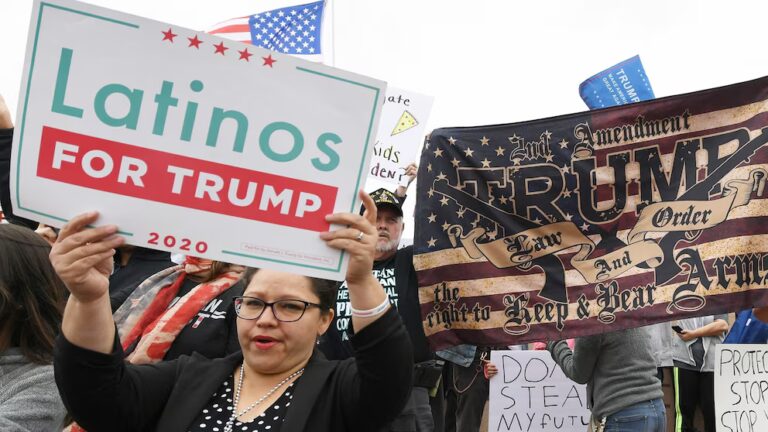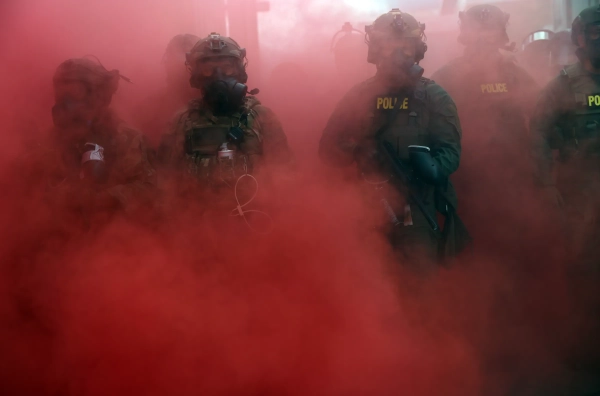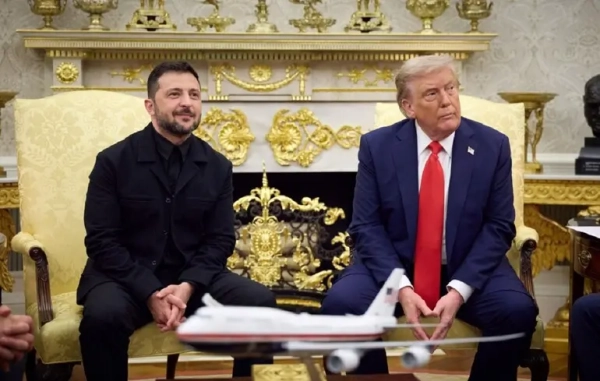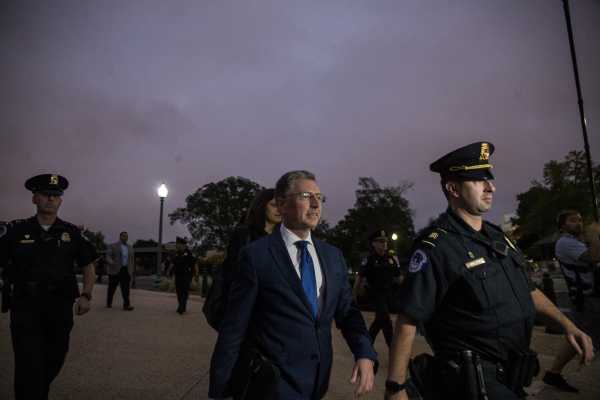
House impeachment investigators are probing whether President Donald Trump, or anyone in his inner circle, directed the president’s former special envoy to Ukraine, Kurt Volker, to press Ukrainian senior officials to shut down a criminal investigation of ex-President Petro Poroshenko, according to sources close to the impeachment inquiry and committee records.
If House investigators are able to uncover evidence that Trump — or anyone close to him — directed Volker to shut down the legitimate investigation of a former head of state as conducted by a sovereign foreign nation, that might constitute a new abuse of power to be included in the articles of impeachment that Democrats are looking to bring against Trump, said one of the sources.
Volker’s role is considered critical in President Trump’s effort to pressure the Ukrainian government to open a formal investigation into alleged corruption regarding a political rival and alleged Ukrainian interference in the 2016 elections. Neither charge has been found to have merit. Volker was one of the so-called “three amigos” — along with Ambassador to the EU Gordon Sondland and Energy Secretary Rick Perry — who had direct access to Trump and worked closely with the US president’s personal attorney, Rudy Giuliani, on the Ukraine pressure campaign.
At the core of the impeachment inquiry is a substantial body of evidence that President Trump, both personally and through subordinates, pushed Ukraine to investigate former Vice President’s Joe Biden’s son, Hunter, and his business dealings in Ukraine. This pressure campaign stood to materially benefit Trump’s 2020 presidential reelection effort by manufacturing dirt against a key rival. It is alleged that Trump withheld $390 million in congressionally-approved military assistance to Ukraine for months pending Zelensky’s public agreement to open an investigation.
Volker has said in closed-door testimony that he participated in efforts to push the Zelensky administration to investigate corruption, but that “he was not aware that Vice President Biden’s name was mentioned or a request was made to investigate him until the transcript of [the phone call between Trump and Zelensky] was released on September 25th, 2019.”
Volker is scheduled to publicly answer questions before House investigators on Tuesday, November 19.
Perhaps because the stakes are so high, the White House and congressional Republicans have devised an aggressive plan to discredit Volker if he were to more directly implicate the administration in this effort, according to two people with first-hand knowledge.
Your guide to the Donald Trump impeachment saga
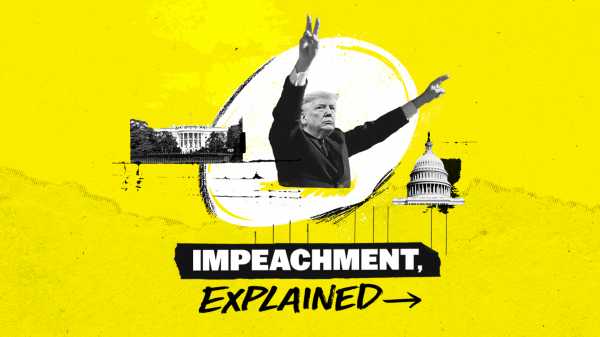
Understand the impeachment process, from its history to what comes next. Explore the full guide here.
They plan to paint Volker as someone who was acting on his own, freelancing in his attempts to shut down the Poroshenko investigation — pointing out that Volker worked for a lobbying firm that only two years ago received a $600,000 contract to represent the Poroshenko regime in the United States, the sources said.
Poroshenko — a confectionary and media oligarch — served as president of Ukraine from 2014 until May 2019, when he lost a reelection bid to the reform-minded Volodymyr Zelensky. The new Zelensky administration subsequently opened a wide-ranging criminal investigation of Poroshenko for alleged corruption and abuse of his presidential office for personal financial gain. That investigation is ongoing.
At a September 14 dinner in Kyiv — accompanied by William Taylor, a career foreign service officer and the acting ambassador to Ukraine at the time — Volker asked two senior Ukrainian officials close to Zelensky not to investigate Poroshenko further or prosecute him. Taylor described this conversation in his executive session testimony to House impeachment investigators. George Kent, the deputy assistant secretary of state for European and Eurasian Affairs, was not present at the dinner, but through conversations with others who did attend, confirmed his understanding of this conversation in his own private testimony to the impeachment investigators.
House investigators believe that Trump, or people around him, sought an end to the Poroshenko investigation in order to protect themselves from whatever the former president and several of his former top aides and political allies might disclose about White House efforts to have Ukraine investigate the Bidens and other political rivals. Giuliani had for months been courting these Ukrainian sources, according to the Washington Post, to obtain “information about Hunter Biden … and [alleged] collusion between Democrats and Ukraine in the 2016 election.” Two of Poroshenko’s former prosecutor generals, as well as several others formerly or currently aligned with him, have been found to have manufactured records and made false allegations (some of them since retracted) that were used as ammunition by the Trump administration to pressure Ukraine and remove the then US ambassador to Ukraine, Marie Yovanovitch, from her position.
Taylor and Kent both testified Wednesday before the House Intelligence Committee as the first public witnesses in the impeachment inquiry, but committee members and counsel did not ask either man about the Poroshenko matter. Volker’s name was mentioned 41 times — and in multiple instances, Taylor, Kent, and Republicans on the committee attested to his integrity and loyalty.
Volker had problematic conflicts of interest with regard to Ukraine
But Volker may have had his own motivations to curtail an investigation by the new Zelensky government. On Nov. 8, the Kyiv Post published an investigative report alleging that the Poroshenko regime — through a nongovernmental organization associated with his administration — paid a DC-based lobbying firm, the BGR Group, more than $600,000 to lobby on behalf of Ukraine, including for allowing the sale of lethal military aid.
The lobbying firm’s website today identifies Volker as a senior international advisor to BGR; he previously served as BGR’s international managing partner from 2011 to 2012.
Jeffrey Birnbaum, the president of BGR Public Relations, one of three divisions of the larger BGR Group, confirmed in an interview that Volker simultaneously worked as a senior international advisor to BGR and as special envoy to Ukraine. But, he added: “Ambassador Volker recused himself from the government of Ukraine work when he was appointed special envoy.” Birnbaum declined to provide any further information about Volker’s work for BGR.
Volker’s dual roles have raised serious issues of conflict of interest. At BGR, Volker advocated a shift of US policy to send lethal weapons to Ukraine — including Javelin missiles, a portable anti-tank weapon manufactured by Raytheon, and a key deterrent to Russian ground forces. Raytheon, which manufactures the Javelin missile system, retained BGR during the very same period of time that the lobbying firm was also representing the government of Ukraine.
The impeachment inquiry is investigating whether President Trump withheld the US military aid package, which included tens of millions of dollars worth of Javelin missiles, in order to pressure the Zelensky regime to investigate the Bidens.
In early October, Volker resigned as the executive director of the McCain Institute for International Leadership at Arizona State University, at the request of Sen. John McCain’s widow, Cindy McCain. Aside from concerns about Volker’s role in President Trump’s shadow diplomacy with Ukraine were other
Volker resigned as special envoy to Ukraine on September 27, hours after the House Intelligence Committee said that Volker would give a deposition to impeachment investigators.
A rogue operator or someone acting at the direction of the White House?
In testimony Volker gave to House impeachment investigators on October 3, he attempted to put some distance between himself and allegations against the president: “At no time was I aware of or took part in an effort to urge Ukraine to investigate former Vice President Biden. Moreover, as I was aware of public accusations about the vice president, several times I cautioned the Ukrainians to distinguish between highlighting their own efforts to fight corruption domestically … [and] anything that could be seen as impacting U.S. elections.”
But Volker’s attorneys also gave impeachment investigators his text messages about his interactions with Giuliani, fellow US diplomats, and Ukrainian officials showing he was far more knowledgeable about the administration’s efforts to push the Zelensky government to investigate Biden, and that he at times facilitated Trump’s and Giuliani’s worst instincts by going along with their efforts to demand the Zelensky administration investigate the Bidens. Investigators believe that he might have more damaging information than he has so far revealed; sources say the White House considers him potentially a far more dangerous witness against the president than they had originally calculated.
Anticipating that Volker might directly implicate President Trump in the effort to have the investigation of Poroshenko shut down, White House officials and sympathetic Republicans staffers on the House Intelligence Committee have devised a plan to discredit and intimidate the former special envoy if he were to make such claims, according to a person asked to participate in the effort.
This person said they planned to paint Volker as having gone rogue, someone willing to use his position as an American diplomat to protect a foreign leader from criminal prosecution because Volker personally stood to gain.
But Volker’s friends and former colleagues say that it would be inconceivable that a diplomat as experienced as he would have asked a senior Ukrainian official to shut down an investigation of a former Ukrainian president — without being directed to do so by President Trump or someone close to his thinking. A former career foreign service officer for more than two decades, Volker served under five presidents, including stints as the US ambassador to NATO and as the primary deputy assistant secretary of state for European and Eurasian Affairs.
Daniel Fried is a former assistant secretary of state for Europe and Eurasia, who personally oversaw Volker’s work for six years at the State Department. Fried told me that he would find it unlikely that Volker would have raised the issue of curtailing the Poroshenko investigation on his own: “He would want to make sure what the policy is. Before he would make such a recommendation he would want to know that was the line generally. I don’t see him freelancing on something like that.”
A person close to Volker, but who did not want to be identified because of the ongoing impeachment hearings, said that Volker “coordinated closely with people on the ground … with the embassy in Kyiv” before suggesting that Ukraine might forego investigating Poroshenko.
This same person said that Volker told them that he did not “act at the direction or on the instruction” of anyone at the White House or higher-ups in the State Department in Washington — and that Volker did not recall specifically asking the Ukrainians not to prosecute Poroshenko. He rather pointed out, the person said, that “it might not be in Ukraine’s national interest” to do so because it would “be politically divisive” and undermine “national unity.”
An executive branch official told me that senior State Department officials only learned of Volker’s attempted intervention on behalf of Poroshenko after the fact, when alerted to it by a foreign service officer in the U.S. embassy in Kiev.
A controversial dinner in Kyiv
The issue of whether Zelensky’s government should investigate or prosecute Poroshenko arose during the September 14 dinner attended by Volker, Taylor, and two Ukrainian advisers to President Zelensky, Andriy Yermak, and Igor Novikov. Yermak is one of Poroshenko’s closest advisers and friends, and personally oversaw sensitive negotiations with Russia and the United States.
As Taylor recently recounted in his testimony for investigators: “Ambassador Volker suggested to Mr. Yermak and Mr. Novikov … that it would be a good idea not to investigate President Poroshenko, the previous President.” At another point during his questioning, Taylor also recounted: “Kurt said [to the Ukrainians], you know, you should move forward, don’t prosecute Poroshenko.”
In his own testimony to House impeachment investigators, Kent independently corroborated Taylor’s account.
According to Kent’s testimony, after Volker suggested to the Ukrainians that they not prosecute Poroshenko, Yermak answered him: “What, you mean the type of investigations you’re pushing for us to do on Biden and Clinton?”
“And at that point Kurt Volker did not respond,” Kent testified.
Sourse: vox.com
